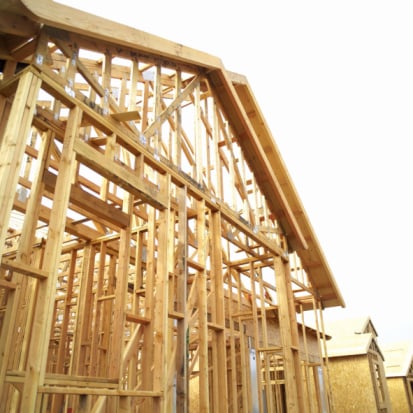Housing
Over 12 Million Mortgages Still Underwater, Dragging the Economy
Published:
Experts call it negative equity. To the general public, the term is underwater mortgages. Regardless of what it is called, 12.2 million Americans have mortgage balances that are greater than the value of their homes. The figure shows both how deep the housing recession has been and how large the hurdles are to a real, national recovery in home sales and price improvement. The housing market, in other words, is still badly wounded. Source: Thinkstock
Source: Thinkstock
Research firm Zillow says about the negative equity rate:
Nationwide, more than half (57 percent) of homeowners in negative equity are underwater by 20 percent or more, and roughly one in seven (13.4 percent) owes more than twice what their home is worth
As should be expected, the problem is much worse in cities where home prices collapsed. The rate is 37% in Detroit; 36.1% in Riverside, Calif.; 31.3% in Phoenix; 36.3% in Tampa; 39.8% in Orlando; and 48.4% in Las Vegas. In most cases, the rate goes hand in hand with employment problems, which creates a cycle of defaults and foreclosures as people are swamped by home loan burdens, as well as the kind of hopelessness that comes with the realization by many of these homeowners that they will never “get their money back” in a sale. The chance to use a home’s value for retirement are in some cases nil.
The ripple effects of the negative equity problem have a disturbing impact in both the present and the future. Underwater homes often have ownership transfer from the persons with the mortgages to the banks that hold those mortgages. Those banks, in turn, do not want to hold the homes, so they are frequently sold off at well below market value. This erodes the value of nearby houses, dragging some the mortgages on those homes underwater. In a city like Las Vegas, the harmful cycle could go on for years.
Looking forward, the number of Americans without the means to retire is well into the millions, as baby boomers come up short on nest eggs. When researchers ask how many of these people have adequate resources to retire, most data show that more than half do not. Their homes have lost value, and in many cases the stock market catastrophe of 2009 is one from which they have never recovered. As a consequence, some of these older Americans will work into their seventies, and much of this work is for low wages. One side effect of this is that people in their early twenties who have started looking for their first full-time jobs find that those jobs have gone to people over 70 — people who may need to hang on to them for a decade.
The underwater mortgage problem does not exist in a vacuum. Actually, it is a major drag on a still fragile national recovery.
Finding a qualified financial advisor doesn’t have to be hard. SmartAsset’s free tool matches you with up to 3 fiduciary financial advisors in your area in 5 minutes. Each advisor has been vetted by SmartAsset and is held to a fiduciary standard to act in your best interests. If you’re ready to be matched with local advisors that can help you achieve your financial goals, get started now.
Thank you for reading! Have some feedback for us?
Contact the 24/7 Wall St. editorial team.